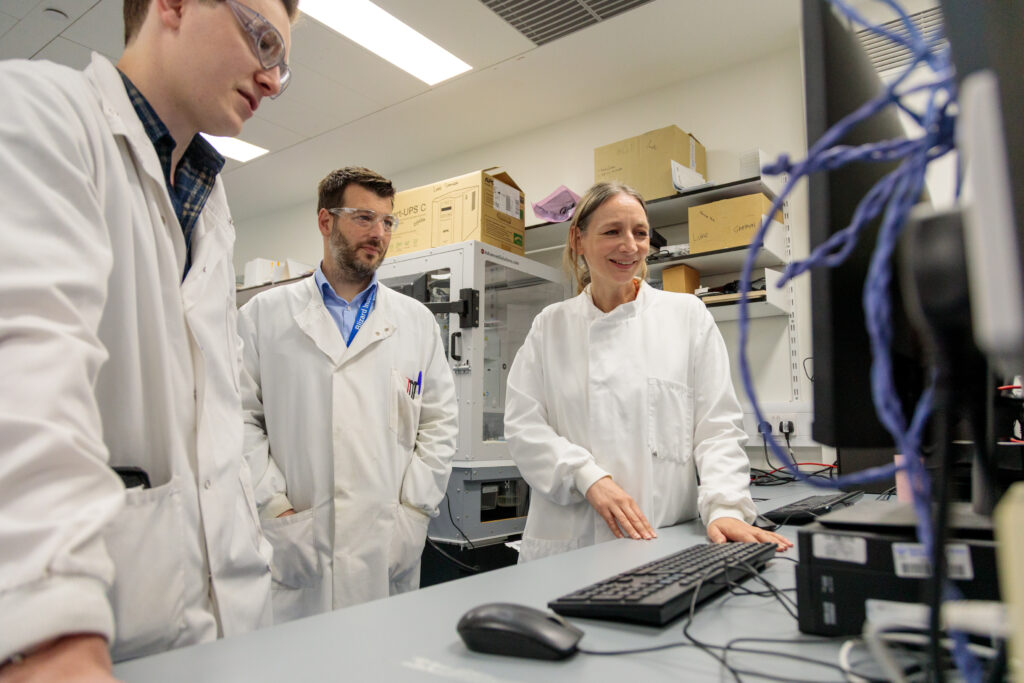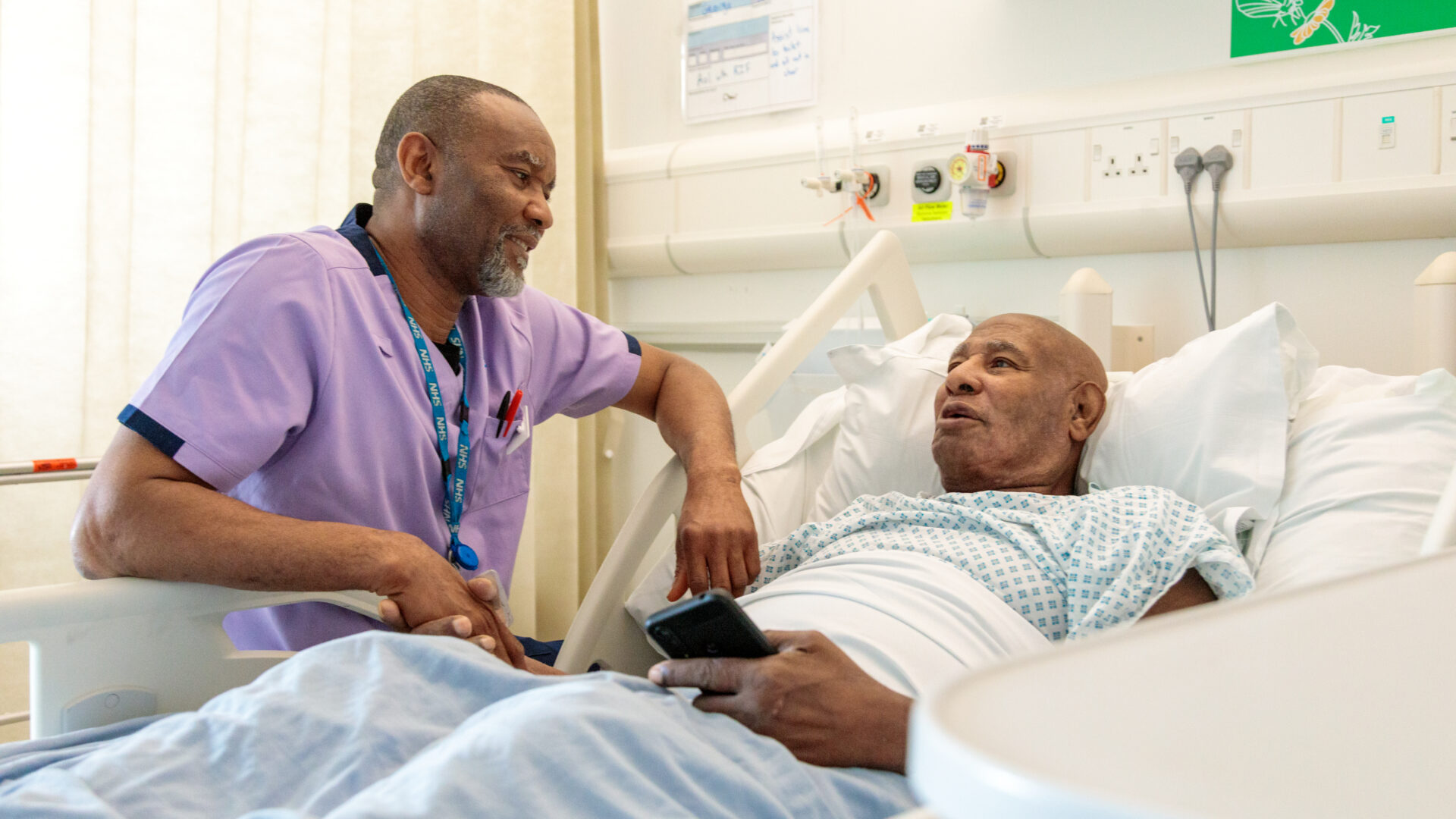East London faces some of the UK’s most significant health disparities. We actively fund numerous initiatives that tackle root causes and aim to improve equity in healthcare.
That’s why, this Black History Month, we wanted to shine a light on some of the pioneering research and healthcare innovations that will build equity in health for black people living in East London.
Improving jaundice treatment for babies of all skin tones
Jaundice is a common condition for newborn babies. Whilst this normally goes away without treatment, in rare cases severe jaundice that isn’t treated in time can cause long term complications such as brain damage.
In the UK, babies of global majority groups are at higher risk of severe jaundice. The BiliNEST project is looking into why this is the case and what changes need to be made to ensure that babies of all skin colours receive the same quality of care.
Read our full interview with Dr Kamla Pillay and Dr Eva Loucaides
“Reducing race related health disparities is really important across the entire country and East London is incredibly ethnically diverse.”Dr Kamla Pillay and Dr Eva Loucaides
Understanding prostate cancer in black men
Prostate cancer is the most common cancer in men in the UK. It is particularly aggressive and more common in black men of African descent. This may be partially due to a certain protein called p16. Research has found that in black men, pancreatic cancers with high levels of p16 have a distinct set of genes that behave differently compared to similar cancers in white men.
Thanks to our support, Dr Cleo Bishop from the Blizard Institute at Queen Mary will be examining prostate cancer samples in black men of Sub-Saharan African descent. Her aim is to understand which cells produce p16, how this affects immune cells in the tumour and how p16 relates to the genes which are more active in black men. This will build upon findings from her previous research into basal-like breast cancer, also funded by us.
It’s hoped that this will help predict disease progression and develop potential new forms of treatment.

Cleo Bishop with her research team at the Blizard Institute, Queen Mary
Developing new breast cancer treatments for African-Caribbean women
African-Caribbean women are more likely to develop aggressive breast cancer at a younger age than white women, and their cancers often don’t respond well to standard treatments. Evidence suggests that this may be because their tumours are biologically different. To develop more effective treatments, representative clinical trials are required as well as a better understanding of the biological drivers of tumour differences.
With our support, experts at Barts Cancer Institute will use advanced technologies to study breast cancer samples to help identify key biological differences. The aim is for this to pave the way for more effective, ethnically relevant tailored treatments.
“I feel the research you are doing means that people who are not Caucasian will get a better chance of survival. One size does not fit all. We are finally being seen and that brings hope.”Breast cancer patient and advocate, part of the Black Women Rising group
Understanding vitamin D and diabetes risk in diverse East London communities
Vitamin D deficiency (VDD) is more common in people with darker skin, including black African-Caribbean groups. In Tower Hamlets, 47% of black residents have VDD, compared to 17% of white residents. They also face a three to six times higher risk of developing diabetes.
VDD is linked to poor blood sugar control and increased risk of type 2 diabetes, but there’s limited research on how this affects African-Caribbean communities in East London.
We’ve funded a study at City St George’s, University of London to improve our understanding of this. Researchers will look at blood glucose and vitamin D levels in 96 healthy adults from white, South Asian and African-Caribbean backgrounds after they have two drinks. These findings will be used to guide future research on vitamin D supplementation and diabetes in global majority groups.
An online space for black female health empowerment
We’ve invested over £1.7m in the Sexual Health and HIV All East Research (SHARE) Collaborative. One part of this has been Dr Vanessa Apea reaching out to communities to shine a light on the lived experiences of black women in East London. This highlighted a clear need for more health resources that centred the needs of black women.
In response, the team created Black Women’s Wellness – an online space designed with and for black women; to connect with others, share experiences and access key health resources.

Vanessa Apea, Consultant Physician in Sexual Health and HIV


